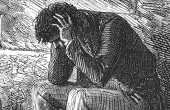Zak
Contributing writer for The Artifice.
Junior Contributor III
- Lurker
- ?
- Articles
1 - Featured
1 - Comments
5
- Ext. Comments
5 - Processed
0 - Revisions
0
- Topics
1 - Topics Taken
1 - Notes
1
- Topics Proc.
1 - Topics Rev.
0
- Points
346 - Rank
X - Score
144
Latest Articles
Latest Topics
A Shift in Middle-grade Content Without a Shift in the Target AudienceThe 90s saw tons of ‘darker’ middle-grade series, Animorphs and Goosebumps to name a few. Neither of these series were so mature that they became inaccessible to their target readers but their stories were grounded in themes or tropes that could still appeal to all ages. Discuss the middle-grade demographic and whether it has more potential to experiment and mix genres and exist outside of the common publication conventions than other demographics such as children’s, YA, or adult. Thoughts on middle-grade? Thoughts on defining books by their demographic rather than genre? Anyone have any good recommendations for more recent ‘all-ages’ novels or series? |
Latest Comments
| Poe's Horror: Reading "The Fall of The House of Usher" | |
It would make sense for newspapers to update their general formats to incorporate more varied types of content, especially with the growing popularization of digital newspapers and daily standalone articles. I agree wholeheartedly with the fact that an ‘air of complexity’ certainly envelops poetry and that introducing it in an everyday setting might help to demystify the genre. Plus, a consistent exposure to poetry would help readers realize that poetry is a broad genre with hundreds of conventions and possibilities beyond the hoity toity or highly confessional types mentioned above. | Should Modern Newspapers Publish Poetry? |
Even though this article was written in 2014, it’s weird not to be able to say that the genre has exploded in the almost ten years it’s been. Although LGBTQ+ representation is becoming more popular in most forms of media, so many of the problems flagged in this article and the comments section are still so pertinent. It’s like a double whammy between the general neglect female characters face compared to their male counterparts and the stylistic regression a lot of ‘mainstream’ anime are facing where any and all the girls look way younger than they’re meant to be. Whether it’s men or women who find this choice attractive, it’s certainly not doing anything for realistic or at least cathartic representation. | Yuri: An Indepth Look at Women in Love |
I took a university grammar class that was aimed towards editors, and as someone who also writes creatively, it took me months to get the constant ‘comma splice’ and ‘sentence fragment’ alarms out of my head. The quote by Laura R. Micciche about using grammar as just another tool for effective writing is one I have never heard verbalized, but that is such a great way to put it, especially because it doesn’t downgrade the importance grammar has in creative writing; rather than saying, ‘oh yeah, it’s an art so it’s all subjective and grammar is irrelevant,’ it frames grammar the same way plot and character are framed—as structural fundamentals. | A Short Guide to a Writer's Imaginary Critics |
In many ways, I think, the act of poeisis nowadays is challenged not only by the “rapid-scrolling pace of life” you mention but also, on the other side of things, by a surplus of information and ‘faux primal zest,’ which seem to be impeding not necessarily creativity but at least creative drive. People are so overwhelmed by information that there is created a seeming inability to attain a now almost divine ‘New.’ Falling back on literary theories like this (and devices & theories in general) is great because it provides fundamentals and at least something to riff off, rather than rolling over in the same spot until dead. It creates a bridge capable of connecting ‘outsiders’ to this world shared between creative thinkers, literary or otherwise. | Movement and Location: A Brief Comment on Meaning in the Literary Experience |

I appreciate how you comment on the double-meaning of the word ‘reading.’ Especially through a first-person narration, themes of perception/reading are so much stronger and contribute not only to the sense of unreliability as we guess what’s being read ‘correctly’ but also that the tale itself becomes self-aware in a ‘one without the other’ relationship between narrator and reader.